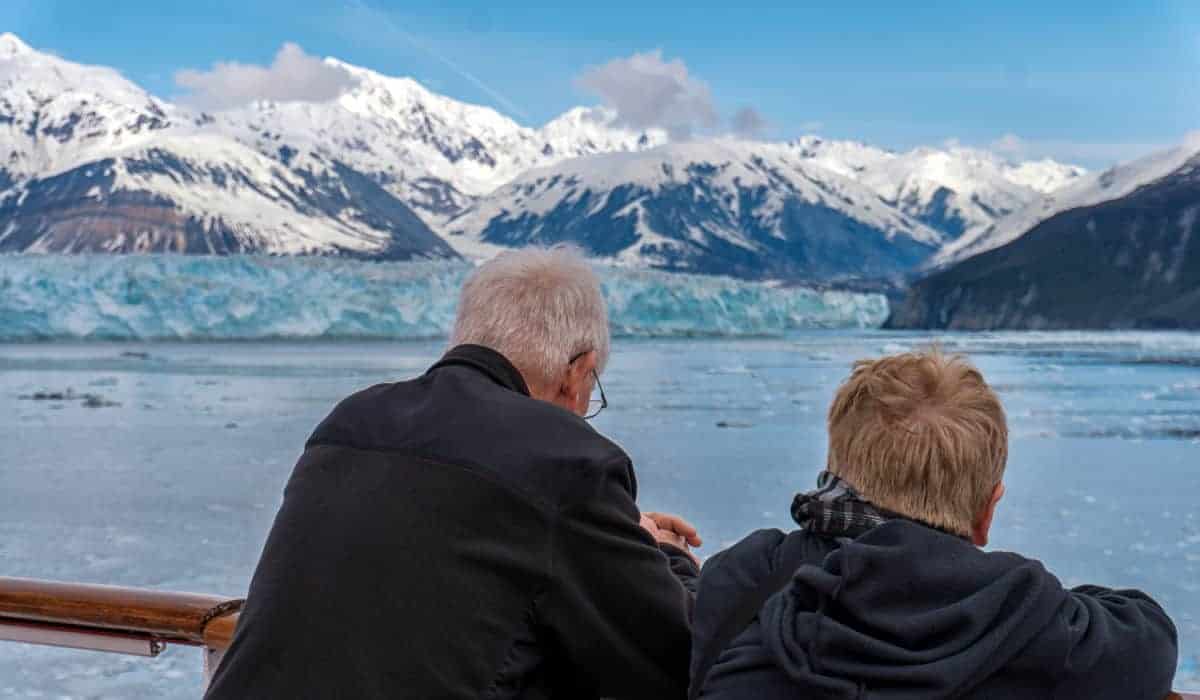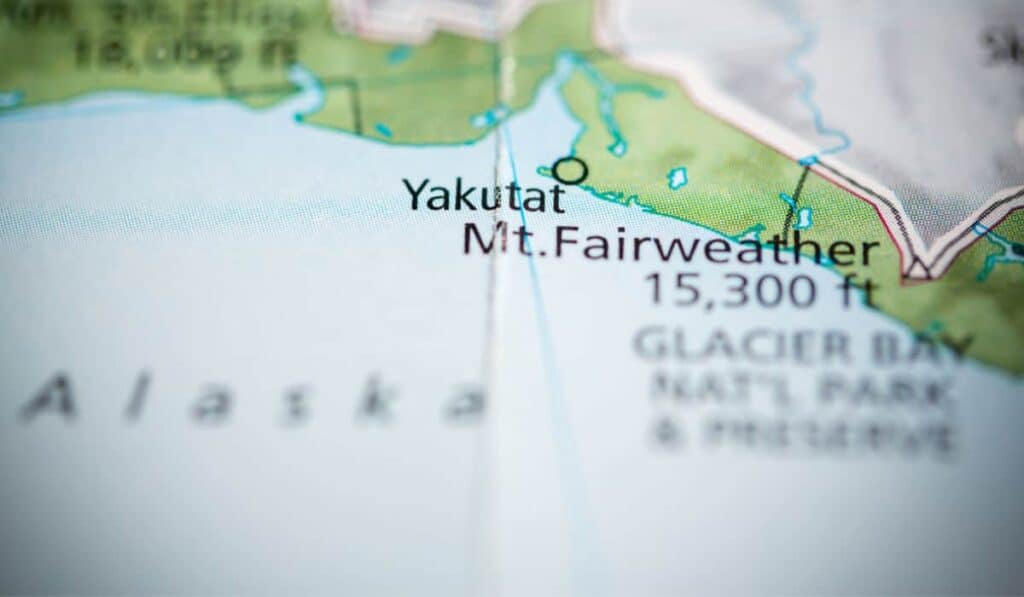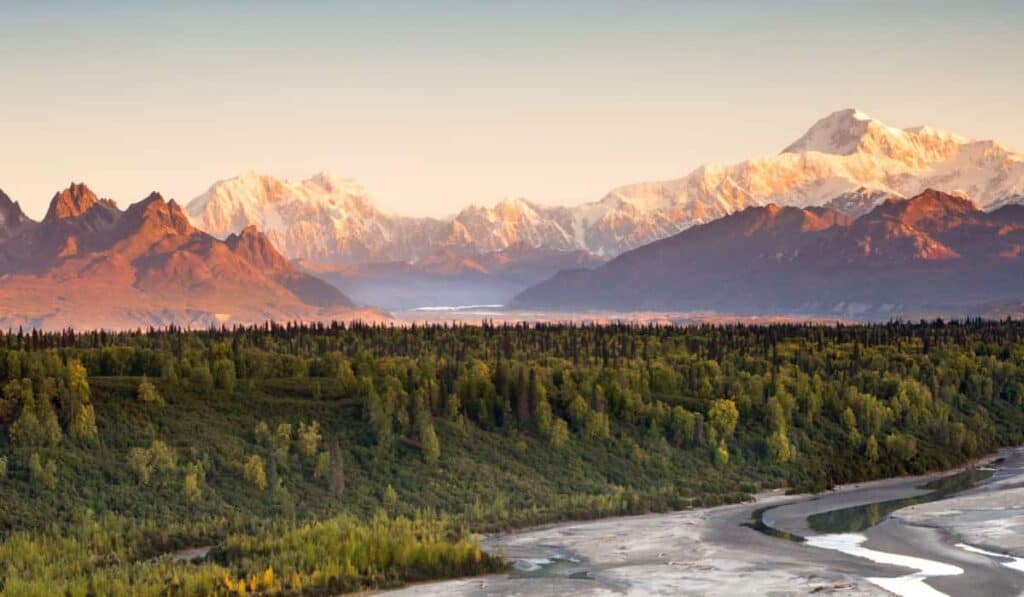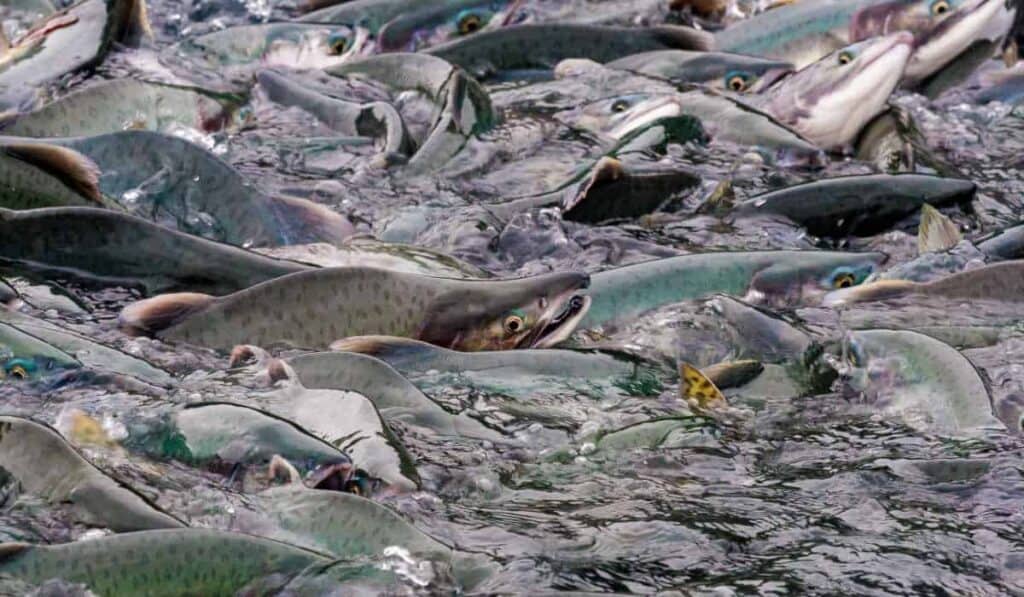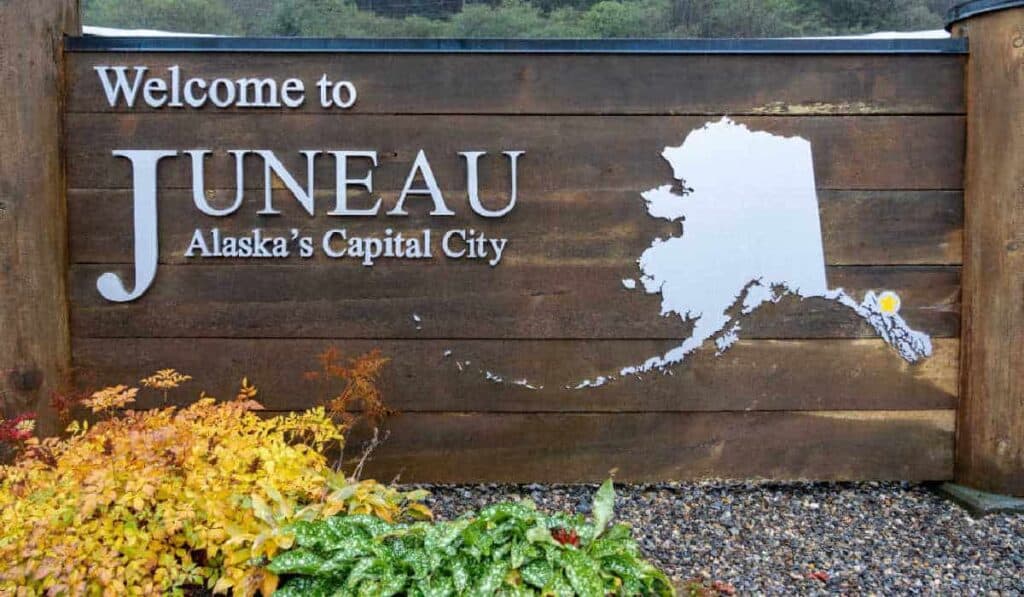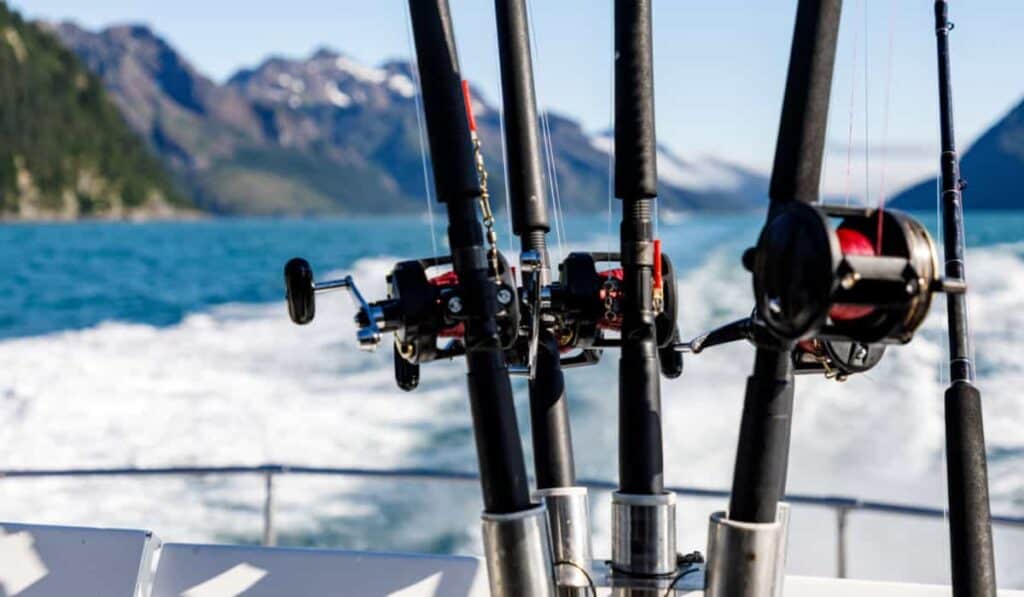The other day, I was walking down the street in downtown Juneau, Alaska, when an older gentleman from a cruise ship approached me to ask how to find the Imperial Saloon, Alaska’s oldest bar.
I happened to be going there myself for the weekly Wednesday trivia night they hold, so I told him that I would walk over there with him.
After the standard remarks about how beautiful it is here and how much he had enjoyed his cruise, he then mentioned that he would be turning 65 soon and was planning on retiring in the next couple of months.
He said that his cruise had inspired him and he was considering moving up to Alaska in his retirement, but he wanted the advice of a local before making such a major decision.
I was only able to give him an abbreviated version since we only had a minute or two, but thankfully, this format allows me to go further in-depth.
However, here’s the short version that I gave him:
The best area to retire in Alaska is the southeast section of the state. It is the most moderate, has a decent level of amenities, enjoys a relatively low crime rate, and is closer to the rest of the United States for travel purposes.
As far as cities go, the only ones that I would recommend for most people looking for a place to retire to in Alaska are Juneau, Sitka, and Ketchikan.
But we’ll get to the “whys” of those below!
The 3 Best Retirement Cities In Southeast Alaska
1. Juneau

As the capital of Alaska, Juneau offers a blend of city life and untouched nature that few places in the world can match.
Nestled between the Gastineau Channel and the coastal mountains, Juneau’s picturesque views are complemented by a rich cultural scene, with many festivals, arts events, and historical attractions.
However, most importantly for retirees, Juneau has more amenities than any other city in Southeast Alaska. You can actually get fast food, healthcare, groceries for normal prices, etc.
It’s also worth noting that the crime rate in Juneau is lower than in many parts of the state.
Last, but not least, it’s possible to have a social life in Juneau. Most retirees rate their connections with others as their main source of joy and it’s pretty hard to connect with anyone when you’re living in the bush.
➤ Explore:
- Things To Do In Juneau, Alaska
- Juneau, Alaska (Background & History)
- Best Places To Eat In Juneau
- Best Hotels Near The Juneau Airport
2. Sitka

Sitka, a charming fisherman’s town, is another option.
Isolated on a large island accessible only by plane or ferry, Sitka is cut off from the rest of the world, offering tranquility and unrivaled natural beauty.
While it’s on the other side of the spectrum from Juneau, Sitka is a great place to experience the grandeur and isolation of Alaska without being totally bereft of society.
The town has a population of 8,518 and is praised for its stunning beauty despite having a somewhat quiet lifestyle. Its remote location may be less attractive for those seeking lots of entertainment, but for those who appreciate the great outdoors and serene living, Sitka is a great choice
➤ Explore:
3. Ketchikan

Ketchikan is another option for retirement in Alaska, although it has been ranked lower than other cities in the state for retirees in 2023.
It is a small town, known for its arts scene, history, and outdoor activities, especially fishing and hiking. The cost of living in Ketchikan is approximately 1.9% higher than the national average (which is decent by Alaskan standards), with the largest increases found in transportation, food, and housing.
The main draw of Ketchikan is that, since it’s such a tourist destination, it’s got tons of things (like shops, restaurants, tours, etc.) that you wouldn’t expect in a town its size.
The trade-off, of course, is that you’ll have to deal with a huge influx of tourists for half of the year when they swarm the best and most interesting areas of the town.
➤ Explore:
- Ketchikan, Alaska (Background & History)
- Best Hotels In Ketchikan
- Weather In Ketchikan
- Should You Move To Ketchikan
- Does Ketchikan Have Cell Service?
However, not that we have a decent idea of the “where” let’s circle back around and consider the bigger question, should you retire to Alaska in the first place?
Should You Retire To Alaska? (5 Things To Consider)
1. Alaska Is Expensive
Like many things, unfortunately, money is probably the most important factor when considering a move to Alaska.
The cost of living in Alaska will vary depending on which city you’re moving to, but it’s probably going to be higher than what you had been paying.
According to a study I read, the average cost of living in Alaska is around 35% higher than the national average. This covers food prices, gas, home heating, and other things.
Similarly, a website called Neighborhood Scout reports that the median home value in Alaska is roughly $235,000.
For comparison, when I was 17 years old, my family and I finally moved out of the trailer park I grew up in and into our first home.
It was a three-bedroom, one-bathroom home in the Mendenhall Valley that we bought directly from the owner for about $300,000. I liked the place, but it was thoroughly unremarkable in every way.
All of that being said, however, there are a few financial benefits to living in Alaska, primarily in the form of taxes.
Alaska is one of the few states that does not have a state income tax or a state sales tax, as our government is funded primarily through the sale of oil and tourism industry-specific taxes.
Some places have a city sales tax, but not all. Juneau currently has a 5% sales tax, but Anchorage does not. I remember being shocked the first time I went to a store to buy a $1.99 bottle of Diet Coke and the man at the register charged me exactly $1.99.
The Permanent Fund Dividend also gives each resident who has lived here for a certain amount of time a check every October, usually between $1,000 and $2,000 per year.
Even including those benefits, though, you’ll want to have some money saved up and/or find some sort of work in Alaska. Having some sort of income, whether it’s a pension, a part-time job, or renting your current home can help offset the increased costs of retiring to Alaska.
2. The Weather Isn’t For Everyone
The other thing to consider is that it gets very cold here in the winter, which can cause problems with older folks suffering from arthritis, surgical plates or pins, or other conditions.
In Southeast Alaska, it’s going to rain a lot, since we’re in the Tongass National Forest, the largest rainforest in North America.

In Anchorage or Fairbanks, it’ll be a few degrees colder than Southeast, but you’ll get less rain. There will be more snow in the winter most years, however.
That being said, if you don’t mind a colder climate and don’t experience joint pain when it gets below freezing, it is incredibly beautiful here.
If you’re extremely sensitive to heat you’ll also want to consider that in your decision of where to retire in Alaska. Yes, it does get hot in Alaska but generally on in and around Anchorage. Southeast Alaska is typically more moderate in every season.
3. Medical Care Is Hard To Come By
In addition to the above, Alaska’s healthcare system might be a bit of a problem if you choose to live in a smaller town.
Anchorage has some pretty good medical facilities, but many smaller communities only have one hospital or even just a small clinic.
If you need an advanced specialist or even some kind of surgery, you may find yourself catching a flight to Seattle in order to get medical care.
If you happen to be in good physical health it’s not an issue, however, Alaska might just be the right place for your retirement.
4. Alaska’s High Crime Rate
Alaska has one of the highest rates of violent crime in the nation, but that statistic might be a little misleading.
First, it’s on a per capita basis and since Alaska has less than 750,000 people, each assault is going to raise that number more than it would in a state with a higher population.
Second, there are a few neighborhoods in Anchorage whose high number of violent crimes skew the state’s data.
Southeast Alaska is generally considered pretty safe, especially compared to the rest of the state.
Since a lot of the communities down here are on islands or, like Juneau, are otherwise not connected to the state’s road system, the crime rates here are lower.
Since the only commercial access to these cities and towns is by plane or the Alaska Marine Highway System, both of which require you to give your real name and show an ID, people know they’re very likely to get caught.
That being said, someone who has had one or two drinks too many might not recognize this fact and commit the crime anyway.
5. Other Thoughts
Alaska has one of the lowest rates of people over 65 in the country, which means you may have a difficult time making friends with fellow seniors.
That being said, Alaskans are generally a rather friendly bunch, and if you don’t mind a younger crowd, making friends might not be an issue for you.
We also have a lot of fishing, which can be an enjoyable activity for people of all ages. It’s an amazing feeling to go out, catch some salmon or halibut, and then come home to eat it for dinner.
Alaska also has the third-highest percentage in the United States of people over 65 who have part-time jobs.
In almost every job I’ve had, there was at least one other person working there over the age of 50 and they were often my favorite coworkers.
They taught me a lot, to the point where I eventually started my own small business. I don’t know if I would have ever done it without their advice and support.
Recommendations
Retiring in Alaska can be an amazing experience, if you have the money to get started, are in relatively good physical health, and want a brand-new experience.
I would definitely recommend Southeast, specifically Juneau or Stika. They’re relatively low in violent crimes, have shorter flights to Seattle for advanced medical care, and have a more temperate climate compared to Anchorage or Fairbanks.
It might not be easy at first and it will definitely take some getting used to, but once you’re settled in, retiring in Alaska can be a very fun and rewarding choice!

